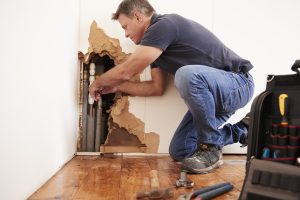
Commentary by the Urban Institute [1]says housing codes can help ensure the safety of residents and the public, but there are disparities in how cities choose how to enforce housing codes violations and what actions are taken against the homeowners.
“Courts are often the last resort for communities seeking compliance with relevant state laws and local codes, but they may not be appropriate or effective for certain types of cases,” the piece, which is authored by Christina Plerhoples Stacy and Joseph Schilling, states.
Providing insight on how to improve housing code enforcement, the piece states the following: prioritize internal housing issues, find flexible solutions for low-income homeowners and provide more resources to pay for repairs, and a focus on race and equity.
Urban Institute states that cities need to focus more time and effort on “serious internal and structural issues” and conduct inspections of multifamily complexes with several violations. It added that these cases pose “more serious risks to public health and safety.”
“As for cases involving single-family homeowners who cannot afford to fix the problems … the courts and code enforcement agencies have to collaborate to find alternative solutions,” the piece states. “In nearby Cleveland, the housing court often diverts low-income homeowners to work with its team of housing court specialists in tailoring court compliance plans that match the owners’ and properties’ unique circumstances.”
Additionally, the high costs of home repair, and lack of rehabilitation resources, pose challenges for low-income owners, especially those in older homes that need more upkeep.
“Many city officials would likely provide low-interest loans to residents if they could, but most rehab programs are funded by the Community Development Block Grant, which has declining funding,” the Urban Institute states.
Additional commentary from the Urban Institute earlier this year [2]explored new ways of financing can engage new partners and investors to provide local communities with funding to address blighted properties.
Calling for an effective "blight remediation strategy" to be flexible, the researchers said it would need to "include various approaches depending on the individual property and the neighborhood's needs and opportunities."